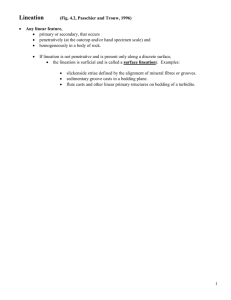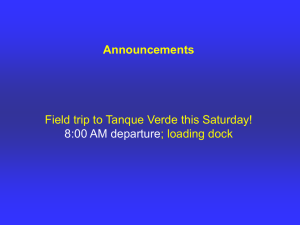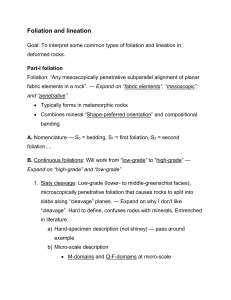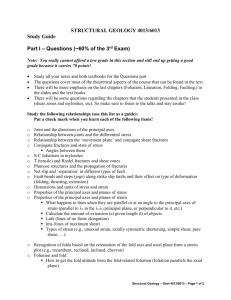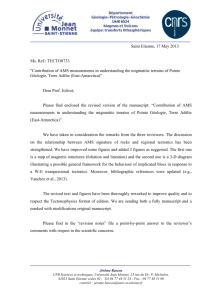lineations
advertisement
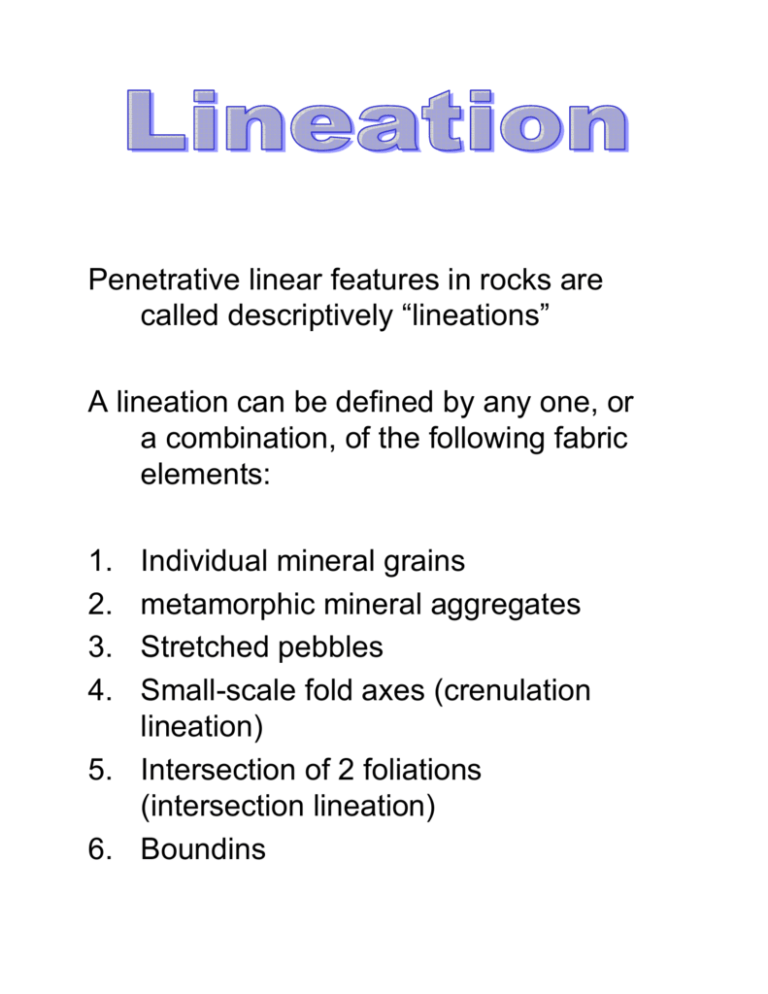
Penetrative linear features in rocks are called descriptively “lineations” A lineation can be defined by any one, or a combination, of the following fabric elements: 1. 2. 3. 4. Individual mineral grains metamorphic mineral aggregates Stretched pebbles Small-scale fold axes (crenulation lineation) 5. Intersection of 2 foliations (intersection lineation) 6. Boundins Examples of fabric elements that can define a lineation Lineation defined by alignment of stretched pebbles in conglomerate. On horizontal sections, the pebbles appear undeformed, but on vertical sections, there is a strong preferred orientation of the pebbles. They define a vertical lineation (Cross Lake geenstone belt, Manitoba) Feldspar crystals are preferably oriented (vertical) on this foliation surface. They define a (mineral) lineation. (Blue Ridge, Virginia) Lineation (parallel to hammer handle) defined by minerals on foliation surfaces (Edmund Lake geenstone belt, Manitoba) Vertical lineation & foliation defined by deformed pebbles in Cross Lake Highly lineated rocks in Southern Knee Lake greenstone belt, Manitoba. The rock appears like wood fibers. Mullion structure Mullion structure Boundinage structure in Cross Lake Boudins and boudin neck folds Boudinage structure from Scotland Boudins mylonites from Scotland Boudinage structure (boudin necks are pressure shadows) Boudinage structure (compare it with the Cross Lake one) The boudins here are still connected… Different degree of competence contrast Folded boudins boudinage (extension) first, folding (shortening) second
